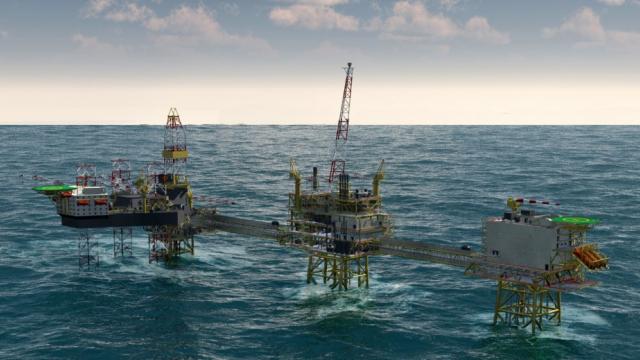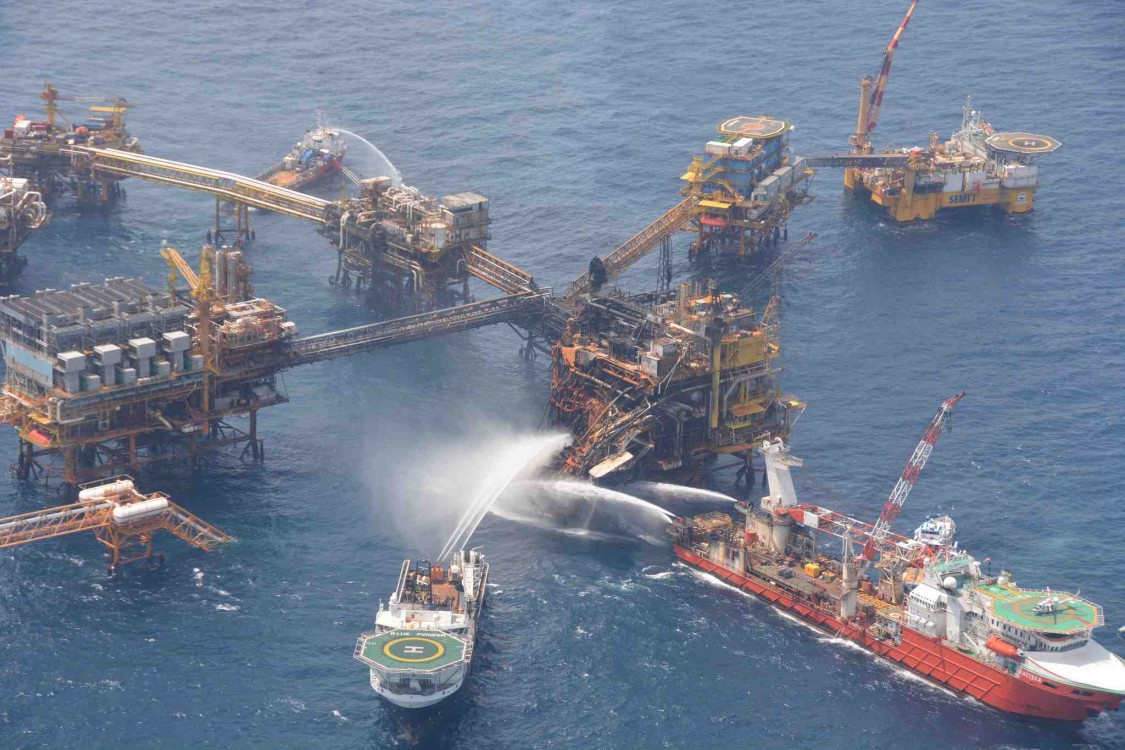
When people mention Maersk they're usually referring to Maersk Line, the world's second biggest shipping company. But its Denmark-based parent company A.P. Moller – Maersk Group also owns the international branch Maersk Oil, which produces more than 500,000 barrels of oil a day, and large quantities of gas as well. Like other multinational oil companies, Maersk is making dodgy tax moves to secure higher profits. But now, Maersk Oil working on behalf of Danish Underground Consortium has threatened to shut down production of the Tyra gas field, pressuring Denmark to lower taxes so it can secure higher corporate profits at the expense of the Danish state.
No Small Matter
Maersk Oil drills worldwide, including off the Danish coast in the North Sea, where the company is part owner (31.2 percent) of Danish Underground Consortium. The other owners of the consortium are Chevron (12 percent), Shell (36.8 percent) and the North Sea Fund, owned by the Danish state (20 percent). While some have argued it would be better to stop gas production entirely, the truth is that gas is less polluting than coal and oil, and remains one of Denmark's cleanest energy solutions despite wind already covering much of the electricity demand.
The Tyra field accounts for 90 percent of Danish gas production and is a vital place for collecting gas and oil from other parts of the North Sea before it gets sent ashore. Because of its economic and logistical importance, a halt in production would cause major disruption in the gas flow, a substantial economic hit for Denmark, and potentially thousands of jobs lost. Maersk Oil claims the gas field infrastructure needs renovation and is not economically sound to continue production – unless the taxes are lowered.
”We have not yet found an economically viable solution to exploit the remaining resources in the Tyra field, and a secure shutdown will be initiated with the goal to stop production by October 1, 2018," Martin Rune Pederson, director of operations at Maersk Oil, recently announced.
However, oil and gas taken from the North Sea have been very lucrative for Maersk. According to Michael Friis Jørgensen, chief analyst at the investment bureau Alm. Brand Markets, company stock will not be affected by the announcement. ”Overall it is a political play in a political debate. It is just a part of the political game, and it is pure negotiation tactics,” Jørgensen told the Danish news bureau Ritzau. In other words, if Maersk Oil is successful in pressuring the Danish state to lower taxes, it will secure the companies behind Danish Underground Consortium a higher profit, benefitting stock owners.
An Expensive Bluff
At the same time, a shutdown would be costly for Maersk and the other companies behind the drilling. They would have to pay for taking down the off-shore platforms and for the cleanup of the field. The infrastructure is needed for other oil and gas production sites in the North Sea, though so far the Tyra field has been very profitable for Maersk despite low oil and gas prices – which are still twice as high as 2003, when Maersk calculated its production to continue for 40 years.
A.P. Moller – Maersk Group is considering selling off its Maersk Oil branch, which would generate a much lower price if the Tyra field is shut down. While the move to close the field might be a sizable bluff, the threat has so far worked: the Danish government has sat down at the table to re-negotiate the tax deals in order to avoid a shutdown, and high-ranking officials from several ministries have been involved at unprecedented levels within the negotiations.
Under discussion are the lowering of hydrocarbon taxes and changes in rules for subtracting various investments. The Danish government has refused to comment on the negotiations, which are being held in secret, entirely out of public view or scrutiny. The irony, of course, is that the taxation negotiations are of crucial importance to the Danish economy and Danish voters, whose voices are going unheard.
More Unfair Deals
Not long ago, the Danish research non-profit Danwatch revealed that Maersk Line is dumping many of its worn-out ships on beaches in countries like Pakistan, India and Bangladesh. There, they are scrapped under highly polluting circumstances, posing a severe health risk to the people who perform the dismantling of the ships, often without any safety equipment. It was revealed that Maersk was cutting costs by not providing adequate equipment or proper facilities to secure worker and environmental safety.
Before the scrapping methods were exposed, Maersk went to Denmark's pro-corporate, right-wing government to secure its backing in case the dodgy ship retirement methods would be revealed. The case has become quite problematic for Maersk, which promised to do a better job and has instead done the opposite, raising public ire. Now, the negotiations going on behind closed doors, in which the company is seen strong-arming Denmark's government into a favorable taxation scheme, could be the red flag that invites an outraged public to act.
Or, of course, it could be just one more corporate win.
3 WAYS TO SHOW YOUR SUPPORT
- Log in to post comments












